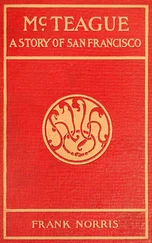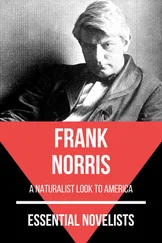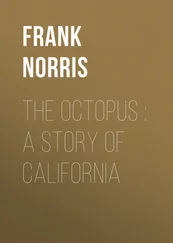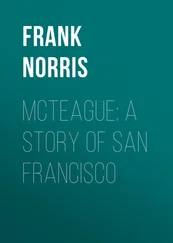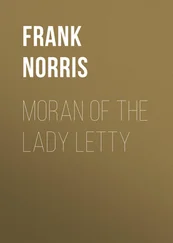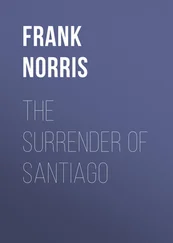Frank Norris - The Pit - A Story of Chicago
Здесь есть возможность читать онлайн «Frank Norris - The Pit - A Story of Chicago» — ознакомительный отрывок электронной книги совершенно бесплатно, а после прочтения отрывка купить полную версию. В некоторых случаях можно слушать аудио, скачать через торрент в формате fb2 и присутствует краткое содержание. Жанр: foreign_prose, literature_19, foreign_antique, на английском языке. Описание произведения, (предисловие) а так же отзывы посетителей доступны на портале библиотеки ЛибКат.
- Название:The Pit: A Story of Chicago
- Автор:
- Жанр:
- Год:неизвестен
- ISBN:нет данных
- Рейтинг книги:3 / 5. Голосов: 1
-
Избранное:Добавить в избранное
- Отзывы:
-
Ваша оценка:
- 60
- 1
- 2
- 3
- 4
- 5
The Pit: A Story of Chicago: краткое содержание, описание и аннотация
Предлагаем к чтению аннотацию, описание, краткое содержание или предисловие (зависит от того, что написал сам автор книги «The Pit: A Story of Chicago»). Если вы не нашли необходимую информацию о книге — напишите в комментариях, мы постараемся отыскать её.
The Pit: A Story of Chicago — читать онлайн ознакомительный отрывок
Ниже представлен текст книги, разбитый по страницам. Система сохранения места последней прочитанной страницы, позволяет с удобством читать онлайн бесплатно книгу «The Pit: A Story of Chicago», без необходимости каждый раз заново искать на чём Вы остановились. Поставьте закладку, и сможете в любой момент перейти на страницу, на которой закончили чтение.
Интервал:
Закладка:
Or, again, it was South Water Street—a jam of delivery wagons and market carts backed to the curbs, leaving only a tortuous path between the endless files of horses, suggestive of an actual barrack of cavalry. Provisions, market produce, "garden truck" and fruits, in an infinite welter of crates and baskets, boxes, and sacks, crowded the sidewalks. The gutter was choked with an overflow of refuse cabbage leaves, soft oranges, decaying beet tops. The air was thick with the heavy smell of vegetation. Food was trodden under foot, food crammed the stores and warehouses to bursting. Food mingled with the mud of the highway. The very dray horses were gorged with an unending nourishment of snatched mouthfuls picked from backboard, from barrel top, and from the edge of the sidewalk. The entire locality reeked with the fatness of a hundred thousand furrows. A land of plenty, the inordinate abundance of the earth itself emptied itself upon the asphalt and cobbles of the quarter. It was the Mouth of the City, and drawn from all directions, over a territory of immense area, this glut of crude subsistence was sucked in, as if into a rapacious gullet, to feed the sinews and to nourish the fibres of an immeasurable colossus.
Suddenly the meaning and significance of it all dawned upon Laura. The Great Grey City, brooking no rival, imposed its dominion upon a reach of country larger than many a kingdom of the Old World. For, thousands of miles beyond its confines was its influence felt. Out, far out, far away in the snow and shadow of Northern Wisconsin forests, axes and saws bit the bark of century-old trees, stimulated by this city's energy. Just as far to the southward pick and drill leaped to the assault of veins of anthracite, moved by her central power. Her force turned the wheels of harvester and seeder a thousand miles distant in Iowa and Kansas. Her force spun the screws and propellers of innumerable squadrons of lake steamers crowding the Sault Sainte Marie. For her and because of her all the Central States, all the Great Northwest roared with traffic and industry; sawmills screamed; factories, their smoke blackening the sky, clashed and flamed; wheels turned, pistons leaped in their cylinders; cog gripped cog; beltings clasped the drums of mammoth wheels; and converters of forges belched into the clouded air their tempest breath of molten steel.
It was Empire, the resistless subjugation of all this central world of the lakes and the prairies. Here, mid-most in the land, beat the Heart of the Nation, whence inevitably must come its immeasurable power, its infinite, infinite, inexhaustible vitality. Here, of all her cities, throbbed the true life—the true power and spirit of America; gigantic, crude with the crudity of youth, disdaining rivalry; sane and healthy and vigorous; brutal in its ambition, arrogant in the new-found knowledge of its giant strength, prodigal of its wealth, infinite in its desires. In its capacity boundless, in its courage indomitable; subduing the wilderness in a single generation, defying calamity, and through the flame and the debris of a commonwealth in ashes, rising suddenly renewed, formidable, and Titanic.
Laura, her eyes dizzied, her ears stunned, watched tirelessly.
"There is something terrible about it," she murmured, half to herself, "something insensate. In a way, it doesn't seem human. It's like a great tidal wave. It's all very well for the individual just so long as he can keep afloat, but once fallen, how horribly quick it would crush him, annihilate him, how horribly quick, and with such horrible indifference! I suppose it's civilisation in the making, the thing that isn't meant to be seen, as though it were too elemental, too—primordial; like the first verses of Genesis."
The impression remained long with her, and not even the gaiety of their little supper could altogether disperse it. She was a little frightened—frightened of the vast, cruel machinery of the city's life, and of the men who could dare it, who conquered it. For a moment they seemed, in a sense, more terrible than the city itself—men for whom all this crash of conflict and commerce had no terrors. Those who could subdue it to their purposes, must they not be themselves more terrible, more pitiless, more brutal? She shrank a little. What could women ever know of the life of men, after all? Even Landry, extravagant as he was, so young, so exuberant, so seemingly innocent—she knew that he was spoken of as a good business man. He, too, then had his other side. For him the Battle of the Street was an exhilaration. Beneath that boyish exterior was the tough coarseness, the male hardness, the callousness that met the brunt and withstood the shock of onset.
Ah, these men of the city, what could women ever know of them, of their lives, of that other existence through which—freed from the influence of wife or mother, or daughter or sister—they passed every day from nine o'clock till evening? It was a life in which women had no part, and in which, should they enter it, they would no longer recognise son or husband, or father or brother. The gentle-mannered fellow, clean-minded, clean-handed, of the breakfast or supper table was one man. The other, who and what was he? Down there in the murk and grime of the business district raged the Battle of the Street, and therein he was a being transformed, case hardened, supremely selfish, asking no quarter; no, nor giving any. Fouled with the clutchings and grapplings of the attack, besmirched with the elbowing of low associates and obscure allies, he set his feet toward conquest, and mingled with the marchings of an army that surged forever forward and back; now in merciless assault, beating the fallen enemy under foot, now in repulse, equally merciless, trampling down the auxiliaries of the day before, in a panic dash for safety; always cruel, always selfish, always pitiless.
To contrast these men with such as Corthell was inevitable. She remembered him, to whom the business district was an unexplored country, who kept himself far from the fighting, his hands unstained, his feet unsullied. He passed his life gently, in the calm, still atmosphere of art, in the cult of the beautiful, unperturbed, tranquil; painting, reading, or, piece by piece, developing his beautiful stained glass. Him women could know, with him they could sympathise. And he could enter fully into their lives and help and stimulate them. Of the two existences which did she prefer, that of the business man, or that of the artist?
Then suddenly Laura surprised herself. After all, she was a daughter of the frontier, and the blood of those who had wrestled with a new world flowed in her body. Yes, Corthell's was a beautiful life; the charm of dim painted windows, the attraction of darkened studios with their harmonies of color, their orientalisms, and their arabesques was strong. No doubt it all had its place. It fascinated her at times, in spite of herself. To relax the mind, to indulge the senses, to live in an environment of pervading beauty was delightful. But the men to whom the woman in her turned were not those of the studio. Terrible as the Battle of the Street was, it was yet battle. Only the strong and the brave might dare it, and the figure that held her imagination and her sympathy was not the artist, soft of hand and of speech, elaborating graces of sound and color and form, refined, sensitive, and temperamental; but the fighter, unknown and un-knowable to women as he was; hard, rigorous, panoplied in the harness of the warrior, who strove among the trumpets, and who, in the brunt of conflict, conspicuous, formidable, set the battle in a rage around him, and exulted like a champion in the shoutings of the captains.
They were not long at table, and by the time they were ready to depart it was about half-past five. But when they emerged into the street, it was discovered that once more the weather had abruptly changed. It was snowing thickly. Again a bitter wind from off the Lake tore through the streets. The slush and melted snow was freezing, and the north side of every lamp post and telegraph pole was sheeted with ice.
Читать дальшеИнтервал:
Закладка:
Похожие книги на «The Pit: A Story of Chicago»
Представляем Вашему вниманию похожие книги на «The Pit: A Story of Chicago» списком для выбора. Мы отобрали схожую по названию и смыслу литературу в надежде предоставить читателям больше вариантов отыскать новые, интересные, ещё непрочитанные произведения.
Обсуждение, отзывы о книге «The Pit: A Story of Chicago» и просто собственные мнения читателей. Оставьте ваши комментарии, напишите, что Вы думаете о произведении, его смысле или главных героях. Укажите что конкретно понравилось, а что нет, и почему Вы так считаете.


